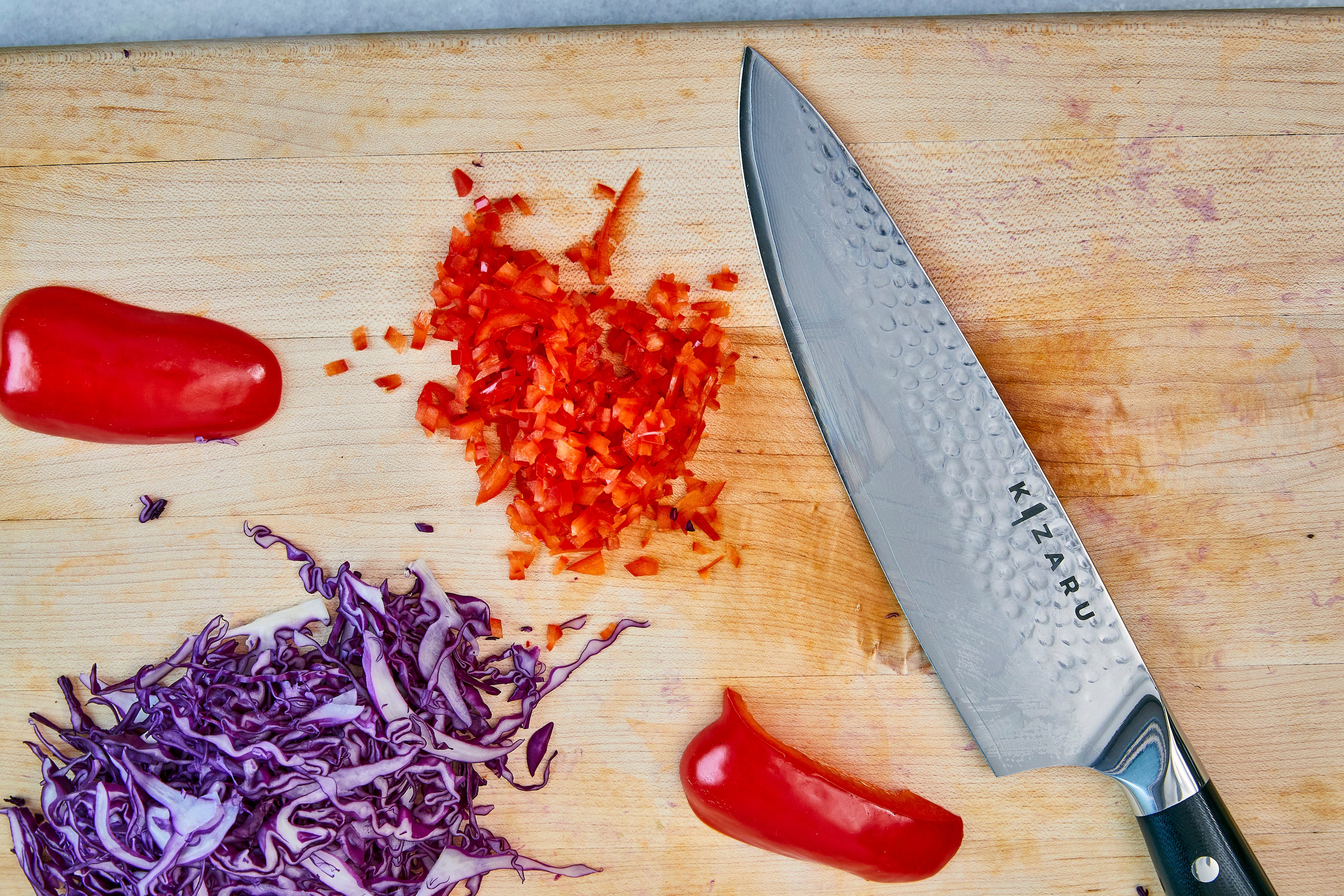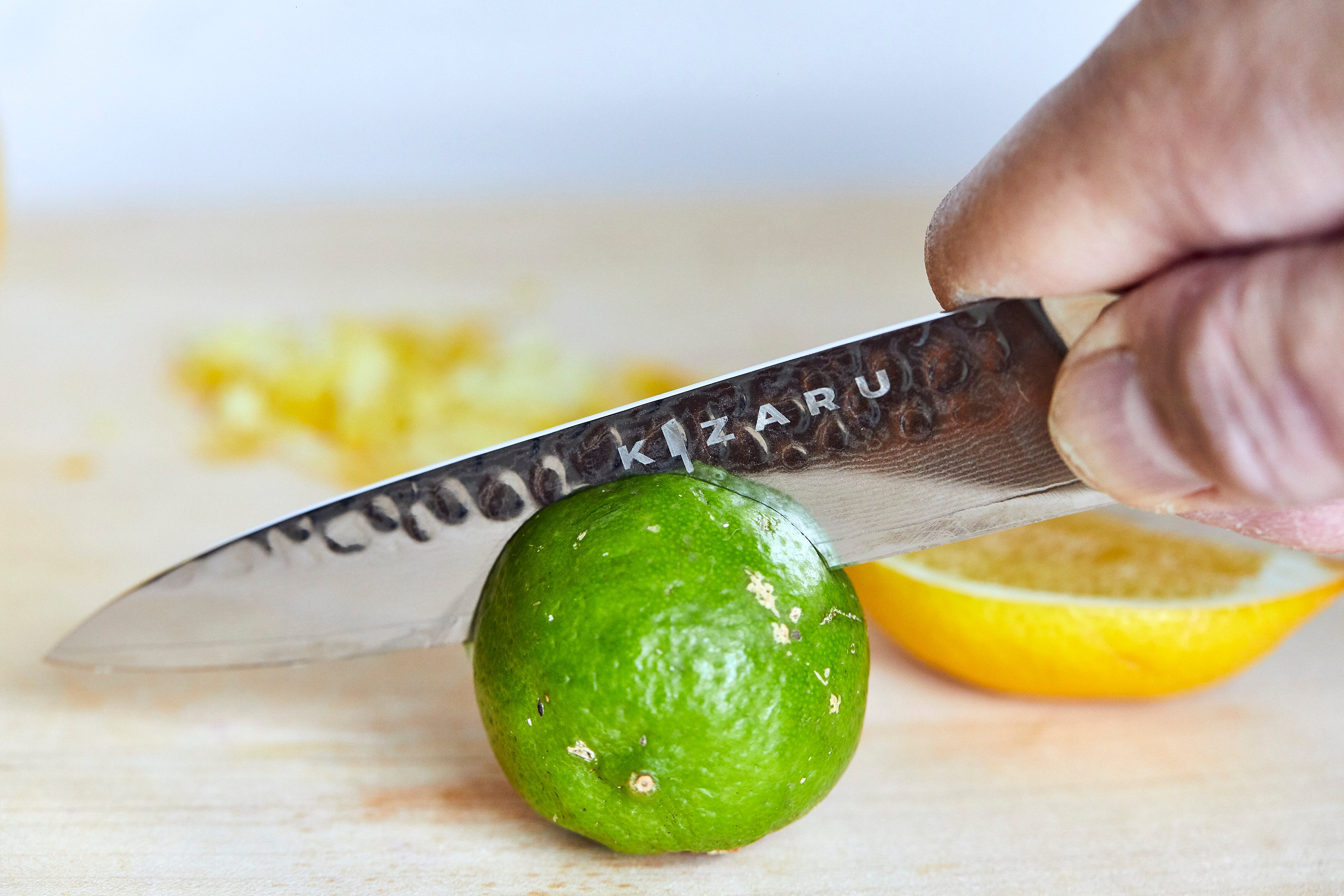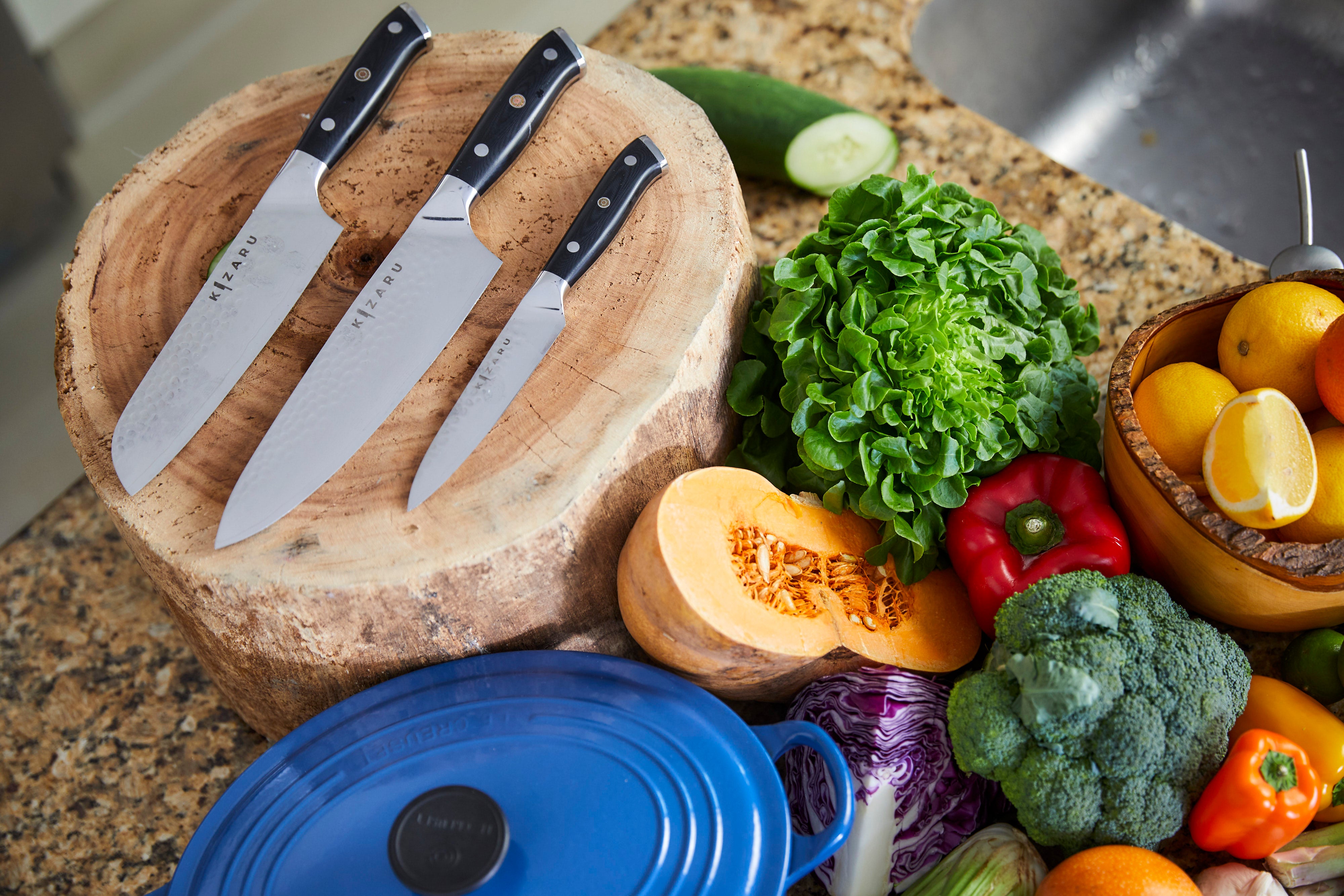
Should Kitchen Knives Go In The Dishwasher? | 3 Care Tips For Your Knives
If you've ever felt the temptation to put your kitchen knives in the dishwasher and benefit from the one-button magic, you're not alone. Most of us don't feel like putting extra effort in doing anything else after a long day cooking or doing meal prep.
However, it's a consensus among chefs and knife enthusiasts that knives should never go in the dishwasher. Those who do compromise the quality of their knives—a wash cycle can bang your knives around and chip their edges, or increase the chances of rust due to the corrosive effects of detergents.
With that said, let's cover what good practices your should follow instead.

Don't Soak
It's a general rule that your blades should never be left soaking.
If you leave your knives in the sink, exposed to bacteria and stagnant water, odds are they will rust over time. The better practice is to rinse them right after use and avoid any food remains from staying on your blade for too long. The earlier you wash your knives the better, so refrain from leaving your knife cleaning duties until the end.
A good habit is simply to rinse your knife after completing any cutting task, even if you're going to use it 15 minutes later. And if you can wash it completely instead, that's even better.

Hand Dry
Instead of washing your knives and leaving them on a dish drying or dish washing rack, it's highly recommended to dry them by hand. After all, air-drying lets water corrode your knife for longer and exposes them to further damage.
Even if your knife's blade is made of stainless steel, it always runs the risk of rusting. Stainless steel only means that there's more chromium content, which acts as a protective film to resist corrosion, but it doesn't mean that it can't corrode under unfavorable conditions. Exposure to cleaners and chemical fluids, or high humidity environments can remove the shielding layer and stain the blade.
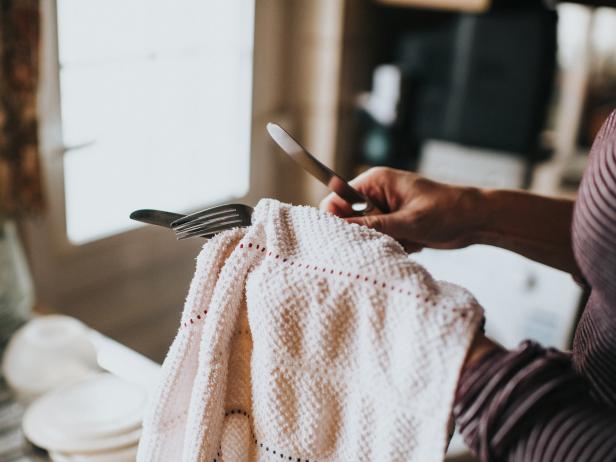
Use The Right Material For Washing
Unless you want a scratched knife, don't make the mistake of washing your knives with the scrubber side of your sponge.e. A few years back I made this mistake and I regretted it so much. While it didn't affect the functionality of the knife, it messed its aesthetics and it was never the same.
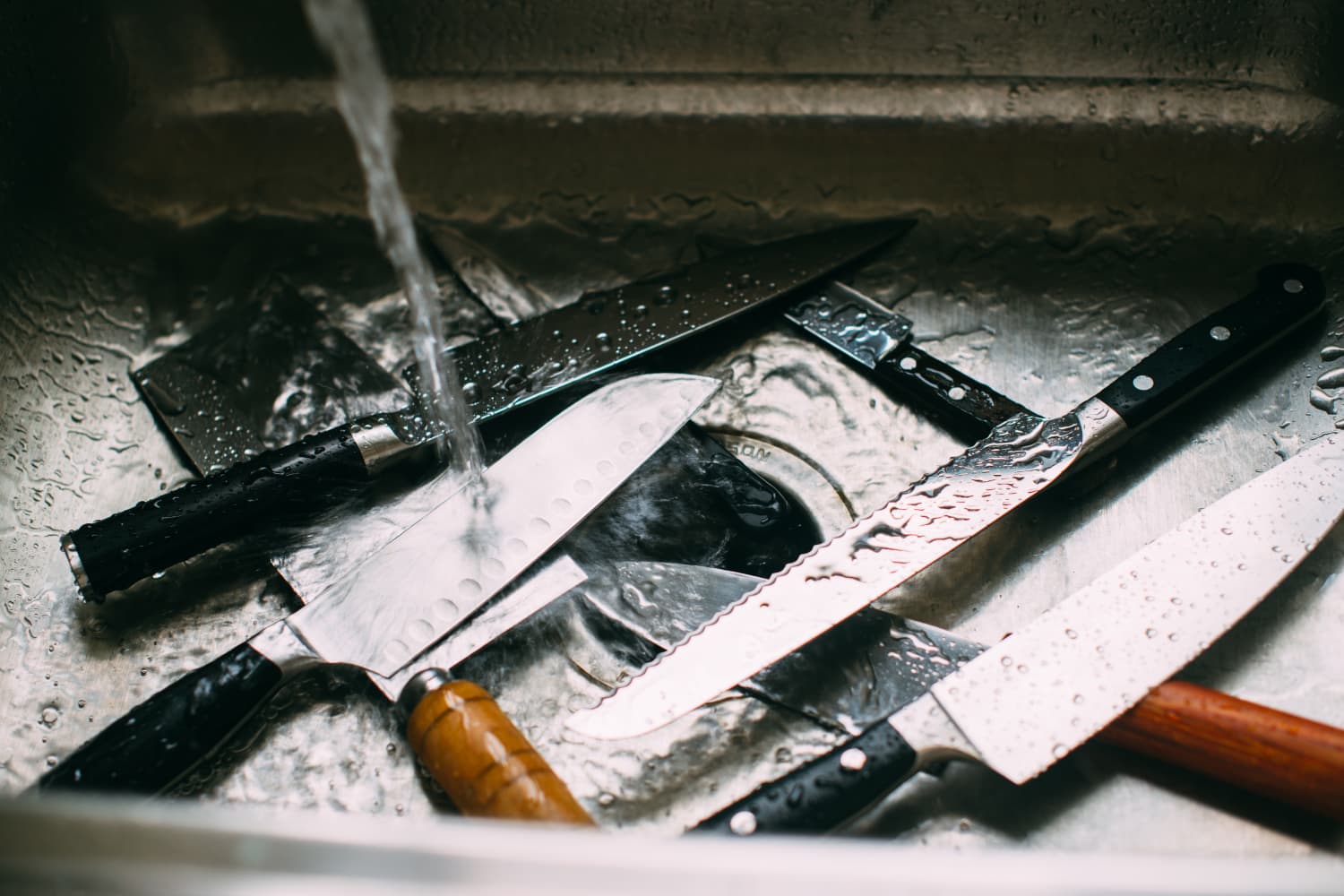
Moreover, for drying, make sure you use a soft cotton towel or any other soft cloth. One of the common materials to avoid is a paper towel—you might get away with it a few times but eventually you could scratch your knife.


